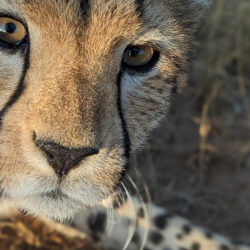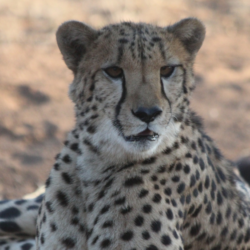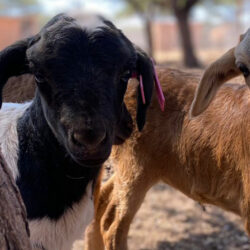30 Years of Black Gold
-
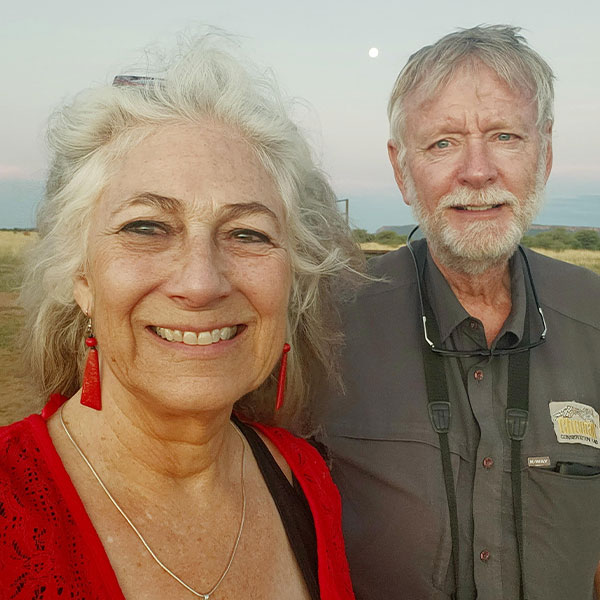
- by Dr. Laurie Marker September 2, 2020

For the past 30 years, the Cheetah Conservation Fund (CCF) has been working closely with the Namibian livestock farming community to find ways to co-exist with cheetahs and other predators. The Namibian farming community is crucial for the survival of the cheetah, as the majority (90%) of the country’s cheetahs live outside of protected areas on our farmlands. CCF’s three pillars of Research, Education and Conservation are the foundation of our mission to ensure a long-term solution to reduce human-wildlife conflict and allow sustainable and profitable integrated management on Namibia’s farmlands.
With less than 7,500 cheetahs remaining worldwide in 23 countries, Namibia’s cheetah population of approximately 1,500 mature individuals, is the largest remaining along with that of Botswana, and is considered the last stronghold for the species. However, the population in Namibia has been declining over the last decades due to human wildlife conflict, loss of habitat, increase of game fencing and bush-encroachment. The species also lacks genetic diversity from historic low numbers, which, in combination with the small size of the fragmented populations throughout its range, cause even greater concerns for the survival of the species.
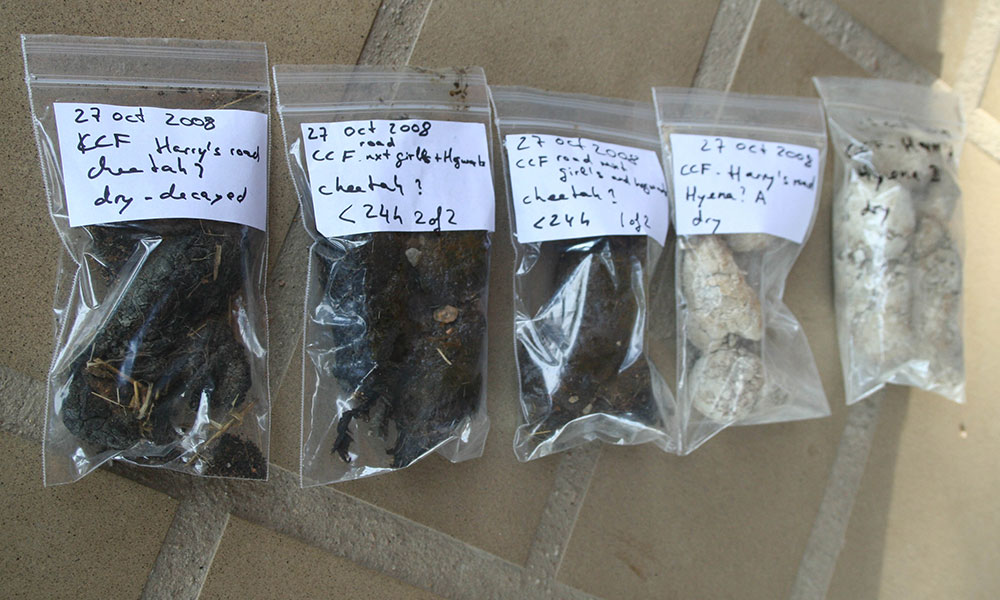
Scientists at CCF’s “Life Technologies Conservation Genetics Laboratory”, which is located at the CCF Research and Education Centre in Otjiwarongo, can identify individual animals and their degree of relatedness. This information is stored in the cheetah’s DNA, which we can be extract out of the cells of the animals’ blood, tissue and faeces or ‘scat’ (we call it Black Gold!). But these samples are difficult to come by and we would like your help to learn more about our Namibian cheetahs and other predators.
To help CCF scientists find cheetah scat, CCF founded the Scat Detection Dog Programme in 2009. Our specially trained dogs are able to sniff out cheetah scat and point it out to their handlers. The programme is run by Tim Hofmann who works with three professionally trained dogs: Ole (Weimaraner), Enyakwa and Gamena (Belgian Malinoises). Tim and his dogs regularly travel within Namibia to visit farms to find scat from cheetah and other predators. The dogs are doing a great job! But even for these four-legged team members finding cheetah scat is a challenge, as cheetahs inhabit large areas (~1,500km2 home range) and with populations continually decreasing, there aren’t that many samples to be found.
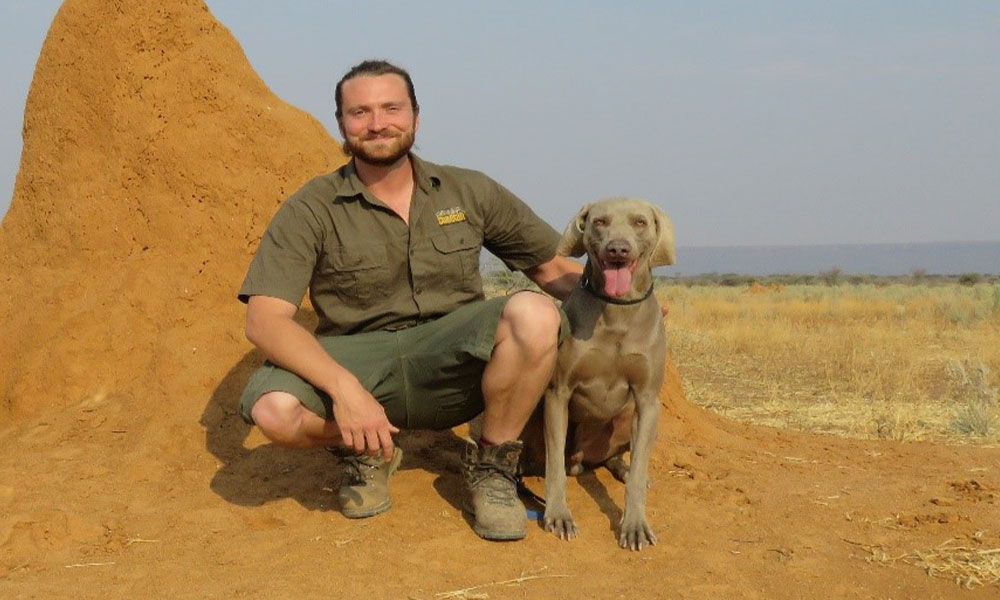
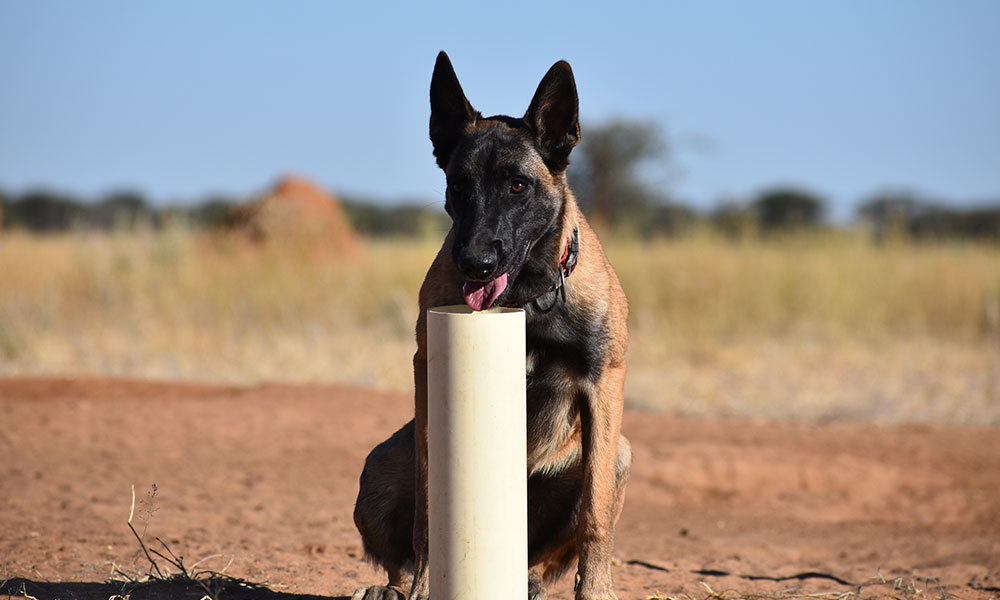
It is for this reason that we work so closely with the farmers, as their in-depth knowledge of their land, wildlife, and cheetah activity, including tracks and scat, leads to the success of our team. Many of the samples we find are at what are known to the farming community as cheetah ‘playtrees’. Cheetahs are known to use these marking sites and regularly visit them to leave ‘messages’ for other cheetahs in the form of urine and scat. Finding these trees can be of great help to establish a more long-term monitoring of the animals. And if we can find more scat then we can learn more about these animals.
As the stewards of the Namibian farmlands, the more we know about our animals, the better we can learn to ‘live together’. CCF and our scat detection dog team would like to work closer with the farming community to learn more about ‘your’ cheetahs and help make a future together.
If you want to learn more about your cheetah population or simply want to contribute and be an active part of our research efforts, please contact Tim at detectiondogs@cheetah.org or 081 7160808. We’d be happy to come to your farm and see if we can find some Black Gold! For any general inquiries and questions please contact CCF at info@cheetah.org or 061 237 294. And if you need assistance with predator problems call our hot line at 081 2275139. Thank you!
Related Reading
-
March 8, 2024
Make a Positive Impact Toward Species Conservation -
November 28, 2023
Everything you need to know about the #BigGiveChristmasChallenge -
May 24, 2023
Lambing Season and Responsible Farming

